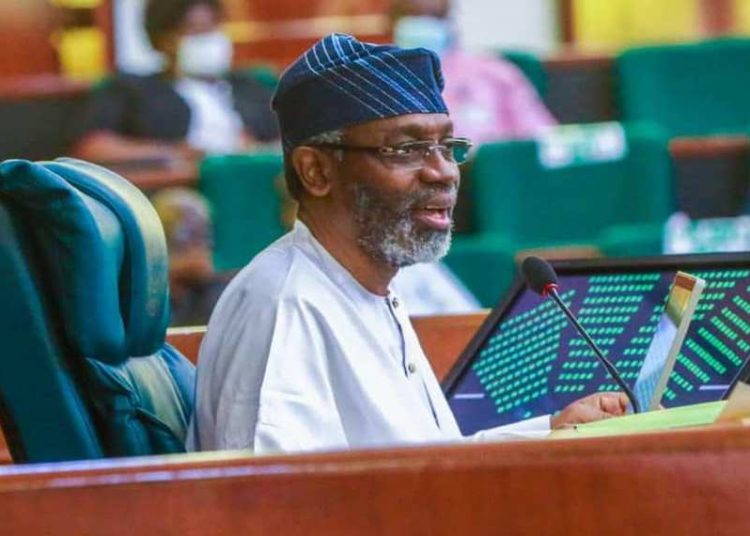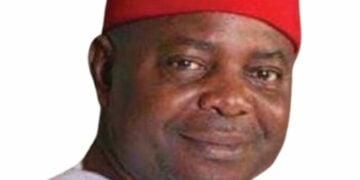The National Assembly last week begun the consideration of the 2023 Apropriation Bill presented to a joint session of the Senate and House of Representatives on Friday, October 7 by President Muhammadu Buhari.
There was an extensive debate on the floor of the House where lawmakers expressed their diversed views on the 2023 budget estimates presented by President Buhari. But before I delve into the back and forth argument, let me quickly observe that there may be a repeat of the 2022 budget controversy when the 2023 Appropriation Bill is passed by the National Assembly.
Ardent observers would not forget in a hurry how President Buhari disagreed with the National Assembly over certain changes made by the lawmakers to the 2022 budget. Specifically, the president criticised the lawmakers for reducing funding for critical projects and inserting thousands of unnecessary projects into the budget.
“Provisions made for as many as 10,733 projects were reduced while 6,576 new projects were introduced into the budget by the National Assembly,” The president Buhari had complained.
According to the President, “Most of the projects inserted relate to matters that are basically the responsibilities of State and Local Governments, and do not appear to have been properly conceptualised, designed and costed.”
To avoid a repeat of recent history, the President, while presenting the 2023 budget estimates, warned members of the National Assembly against insertions into the budget proposal, noting that the budget should be passed in its organic form.
He also warned relevant committees of the National Assembly to desist from passing budgets for Government Owned Enterprises (GOEs), which are at variance with the budgets sanctioned by him (President) and communicate same directly to the MDAs. This, according to the President, is against the rules and must stop.
“I have directed the Minister of Finance, Budget and National Planning to immediately work on mainstreaming these reforms and work with the National Assembly on passing an Organic Budget Law, which I hope to assent to before the end of this Administration.
“I would like to implore the leadership of the National Assembly to ensure that the budget I lay here today, which includes those of the GOEs, be returned to the Presidency when passed. The current practice where some committees of the National Assembly purport to pass budgets for GOEs, which are at variance with the budgets sanctioned by me, and communicate such directly to the MDAs is against the rules and needs to stop,” he stated.
Going by the president’s statements above, it seems we are back to square one as the question of who has the power of the purse between the executive and the legislature has not been satisfactorily resolved. In a democracy, which institution is the bigger partner – the executive or the legislature?
A frank response as expected came first from the House leader, Alhassan Ado Doguwa, who at the point of presenting the Bill to his colleagues for a second reading clarified that the parliament has the final say on the Money Bill. Will the National Assembly exhibit the courage to follow Doguwa’s statement through and set a precedent that will stand the test of time in our democracy? Quite honestly, the 9th Assembly has not demonstrated such capacity in the last three years. But this 2023 budget presents the last and golden opportunity to decide on where they want to be in our history books.
It is noteworthy that lawmakers both from the ruling and opposition parties have raised concerns about the huge percentage of recurrent expenditure component of the proposed budget.
The president proposed N8.2 trillion for recurrent expenditure in the proposed N20.51 trillion budget, which amounts to 43 per cent of the entire budget size.
Some lawmakers also expressed concerns over the borrowing by the present administration while others, particularly members of the opposition political party (PDP) disagreed that the deadline for subsidy removal as announced by President Buhari shouldn’t be early next year. Other issues raised on the proposed budget include the oil production benchmark of 1.8 million barrels per day as against the OPEC quota of 1.69 million bpd, even in the face of massive crude oil theft in the oil-producing Niger-Delta region.
With the comments of lawmakers during the debate, Nigerians should expect fundamental changes in the Appropriation Bill that will be passed by the National Aseembly. What I cannot predict is whether or not President Buhari will be interested in scrutinising whatever the lawmakers arrive at eventually, since his government will not be in charge to implement the large part of the 2023 budget.





